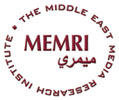Introduction
On January 25, 2004, the Iraqi independent daily Al-Mada published a list of approximately 270 individuals and entities who were beneficiaries of Saddam Hussein’s oil vouchers. [1] The report  evoked reactions from many of those included in the list as well as from the Arab media, among them apologists for Saddam’s regime. The fact that so many have opted for silence may give credence to the list’s authenticity.
evoked reactions from many of those included in the list as well as from the Arab media, among them apologists for Saddam’s regime. The fact that so many have opted for silence may give credence to the list’s authenticity.
A former undersecretary in the Iraqi Ministry of Petroleum, Abd Al-Saheb Salman Qutb, said that the ministry possesses documents proving the authenticity of the list published by Al-Mada. The list was originally the property of the State Oil Marketing Organization (SOMO), which was responsible for marketing Iraqi petroleum. [2] Mr. Qutb also said that the ministry was collecting the information for submission to Interpol, which could then pursue the voucher beneficiaries. [3]
The Iraqi Governing Council has focused on 46 foreign individuals and organizations included on the lists, primarily from neighboring countries, to determine appropriate action. [4] Council member Muwwafaq Al-Rabi’i said during a visit to Beirut that the council has "tons of documents" but emphasized that the publication of these documents will be handled in a constructive way and not "for the sake of vengeance and revenge." [5]
In describing what it called "the curse of the Iraqi vouchers," the London Arabic-language daily Al-Hayat said that it expects more names and details to be made public in the near future and anticipates the revelation of a scandal of vast dimensions transcending countries and continents, implicating many prominent individuals and organizations. [6]
How It Worked: The Voucher Transactions Method
In a subsequent article, Al-Mada provides details on the allocation and sale of oil vouchers. In general, the vouchers were given either as gifts or as payment for goods imported into Iraq in violation of the U.N. sanctions. The voucher holder would normally tender the voucher to any one of the specialized companies operating in the United Arab Emirates for a commission which initially ranged from $0.25 to $0.30 per barrel, though it may have declined in later years to as little as $0.10 or even $0.05 per barrel because of oil surplus on the market. [7] In other words, a voucher for 1 million barrels would have translated into a quick profit of $250,000-300,000 on the high side and $50,000-100,000 on the low side – all paid in cash. According to Al-Mada, Jordan will seek to tax the illicit profits of citizens who benefited from the sale of the vouchers.
One of the common arguments by recipients of vouchers was that the vouchers paid for goods provided in the framework of the U.N.-administered Oil for Food program. However, under the Memorandum of Understanding governing the program, oil allocations were intended for "end users," meaning those with refineries. Most of the voucher recipients would be considered "non-end users." Moreover, if vouchers were used to pay for goods, it would suggest that these were not authorized by the program and should be considered illicit since all contracts approved by the U.N. were reimbursed from the trust account where the oil revenues were kept, at a French bank, at Iraq’s insistence. According to the United Nations: "The oil buyer had to pay the price approved by the Security Council Sanctions Committee into a U.N. escrow account, and the U.N. had to verify that the goods purchased by Iraq were indeed those allowed under the program. But the U.N. had no way of knowing what other transactions might be going on directly between the Iraqi government and the buyers and sellers." [8]
This report reviews the Saddam oil vouchers affair, in two parts:
Part I: (A) the list of oil vouchers recipients; and (B) reactions by implicated individuals and organizations.
Part II: Arab media reactions.
In part of the report one can see the name of Mujahedin Khalq Organization aka MKO, MEK, PMOI:
The Mujahideen Khalq (36.5) is an organization which opposes the Iranian regime which had operated from within Iraq under the Saddam regime. The United States has classified it as a terrorist organization and it has recently been ordered to leave Iraq.

